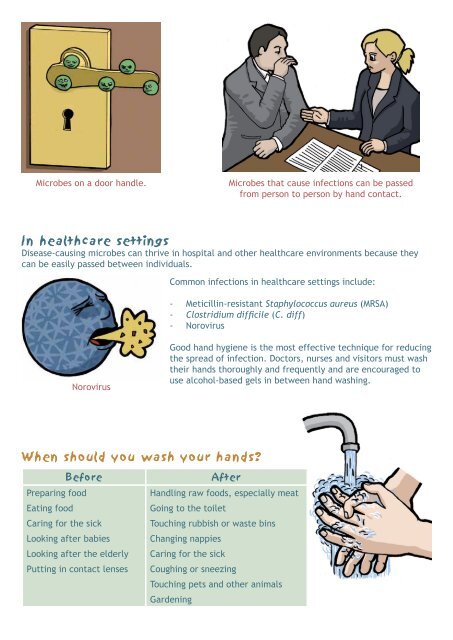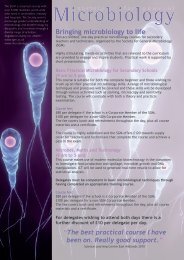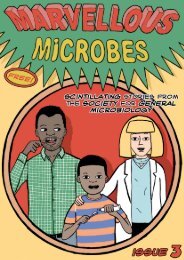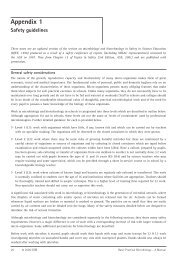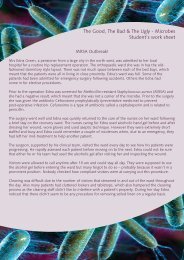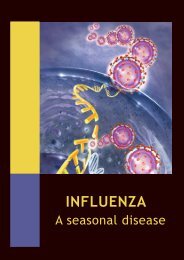The why, when and how of hand washing - Microbiology Online
The why, when and how of hand washing - Microbiology Online
The why, when and how of hand washing - Microbiology Online
You also want an ePaper? Increase the reach of your titles
YUMPU automatically turns print PDFs into web optimized ePapers that Google loves.
Microbes on a door h<strong>and</strong>le.<br />
Microbes that cause infections can be passed<br />
from person to person by h<strong>and</strong> contact.<br />
In healthcare settings<br />
Disease-causing microbes can thrive in hospital <strong>and</strong> other healthcare environments because they<br />
can be easily passed between individuals.<br />
Common infections in healthcare settings include:<br />
- Meticillin-resistant Staphylococcus aureus (MRSA)<br />
- Clostridium difficile (C. diff)<br />
- Norovirus<br />
Norovirus<br />
Good h<strong>and</strong> hygiene is the most effective technique for reducing<br />
the spread <strong>of</strong> infection. Doctors, nurses <strong>and</strong> visitors must wash<br />
their h<strong>and</strong>s thoroughly <strong>and</strong> frequently <strong>and</strong> are encouraged to<br />
use alcohol-based gels in between h<strong>and</strong> <strong>washing</strong>.<br />
When should you wash your h<strong>and</strong>s?<br />
Before<br />
Preparing food<br />
Eating food<br />
Caring for the sick<br />
Looking after babies<br />
Looking after the elderly<br />
Putting in contact lenses<br />
After<br />
H<strong>and</strong>ling raw foods, especially meat<br />
Going to the toilet<br />
Touching rubbish or waste bins<br />
Changing nappies<br />
Caring for the sick<br />
Coughing or sneezing<br />
Touching pets <strong>and</strong> other animals<br />
Gardening


